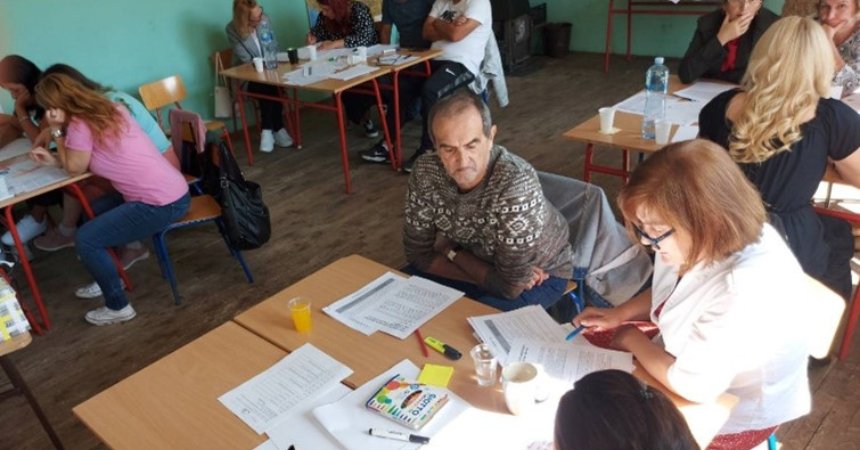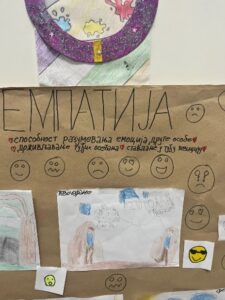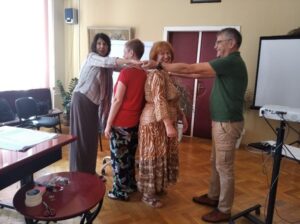Growing Social-Emotional Character Development Skills Among Students & Teachers in Primary Schools in Serbia


Since summer 2022, Childhood Education International and our partner, the Center for Interactive Pedagogy (CIP), have overseen a social-emotional character development (SECD) program in primary schools in Serbia.
Throughout this time, there has been immense growth in SECD in the schools, and they have built more inclusive, democratic learning environments. CE International and CIP have supported this growth by collaborating to assess needs of Serbian communities and build capacity via development and implementation of an SECD training series to schools’ continuous integration of SECD practices.

A poster about empathy on a school wall in Stepojevac, Serbia.
Since the spring, CE International and CIP have focused on speaking with teachers and school staff about their experiences participating in this capacity-building program and what they see in the changes of their students and learning settings over the last two years.
Among the teachers, several of the same topics came up again and again. Many have reported seeing shifts in students and school climate, including increased inclusion, relationship-building, tolerance, self-regulation, and collective engagement.
Nevena and Jelena, second grade teachers at a school in Subotica, pointed out how talking more about emotions, employing mirrors on the wall, and bringing in more use of sensory objects supported their students’ self and social awareness. They said that over the course of the school year, they noticed greater empathy among their students, which led to a more inclusive classroom environment for them all.
They also shared that they have talented, ambitious students, and they want to help the students see strengths in each other and build relationships that would allow them to collective use those strengths, rather than negatively competing against each other. As they expressed, “Overall, we want to prepare the children for life, to be happy, and to be kind to others.”
Teachers and staff from each school joined Communities of Practice and conducted Participatory Action Research (PAR), an approach in which people directly affected by a social issue actively participate in the research process and collaborate with researchers to understand the problem, take action to address it, and aim to bring about social change.
This meant that in collaboration with our research partners from the University of Belgrade, schools also engaged students and parents to help address an issue. At one of the schools in Pančevo, the group mentor wrote that one of the issues to address was student behavior in and out of school settings. Teachers prepared scenarios of misbehavior and presented them to student groups to learn from them what behavior they could demonstrate instead. By providing a non-punitive environment for students to have a voice, it shed light on the issue and gave space for teachers, students, and parents to work together on improving behavior in the future.
Although the issue may not have been fully resolved during the PAR activity, it allowed the school to become more collectively engaged and democratic in its methods for shaping students’ growth. All schools involved in the program continue with their Communities of Practice with horizontal learning exchanges this fall and winter.

An SECD training session with teachers and staff at a school in Pančevo, Serbia.
We look forward to sharing more anecdotes, stories, and experiences to share from this program at a project conference in Belgrade, Serbia, December 5-6, 2024. All project schools and their students and teachers, as well as partners, funders, Ministry of Education representatives, and various other stakeholders will convene to share learnings, disseminate SECD activities and endeavors, present evaluation results, and discuss ways in which to scale this program to other schools in the country and wider region.
After the conference, we look forward to sharing more of our findings from the program and learnings about how we can work together to support schools’ social-emotional capacities and inclusion of all children.